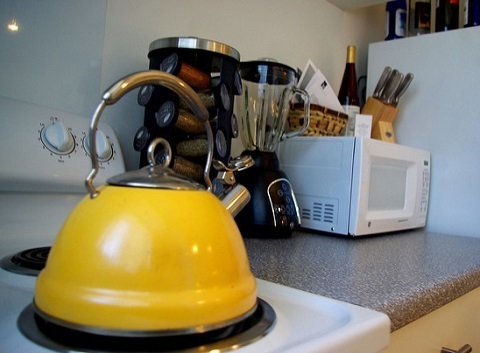How to save energy in the kitchen

Once you heat up a burner and your dish is almost cooked, turn it off and coast on the stored heat. (Credit: Kenny Corbin via Flickr)
Large appliances -- refrigerator, range and dishwasher -- use the most energy in the kitchen. But there are lots of little ways to conserve.
Size matters
Match the cooking appliance to the job. Heating up a toaster oven uses less electricity than an entire conventional oven. Place big pots on big burners -- and don't forget the lids.
Coast on waste heat
Once you heat up a burner and your dish is almost cooked, turn it off and coast on the heat stored in the pot. Keep the lid on to help conserve heat and continue the cooking process. (Cast iron does this well.)
Cool leftovers
Made enough for lunch tomorrow? Planning to freeze a batch of soup? Cool leftovers to room temperature before you store them in the fridge or freezer. Placing hot food in a cold fridge heats up the air inside, making it work harder.
Plan ahead
Before you get chopping and slicing, think about everything you need from inside the fridge or freezer. Avoid standing with the door open, letting cold air escape! Go in once, get all the ingredients you need. Put stuff back inside all at the same time, too.
Refrigerate only what's necessary
If you can't recall the last time you cleaned out your fridge, it's probably time to clean out your fridge. Only refrigerate food that needs it (PDF). Perishables include dairy products, most fruits and veggies (except tomatoes!), meats and fish. But bread and some condiments, such as vinegar, just take up space. Air circulates better in uncrowded fridges and freezers. That makes them more energy-efficient and keeps food fresher longer.
What other steps do you take to conserve energy in the kitchen?
Sincerely,
Lindsay Coulter, a fellow Queen of Green
Hey! Want more DSF? Join David Suzuki on Facebook

David Suzuki's Blog
- David Suzuki's profile
- 247 followers



